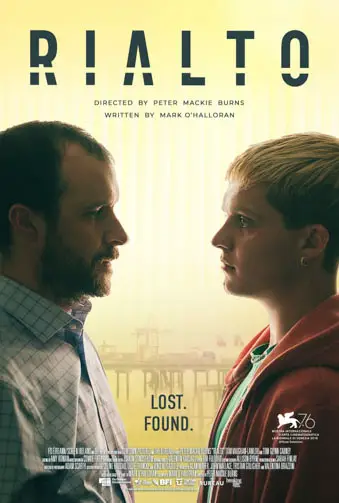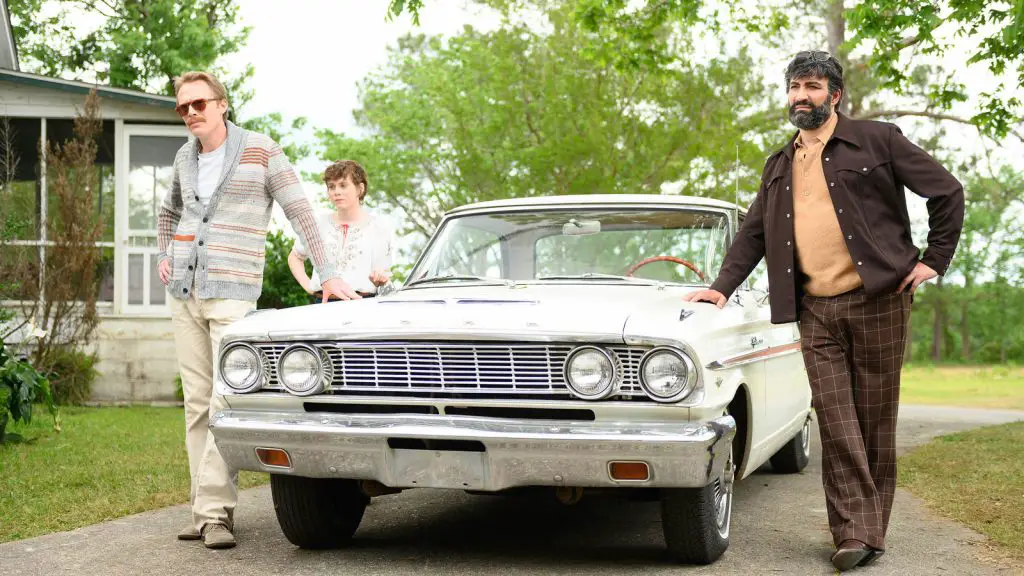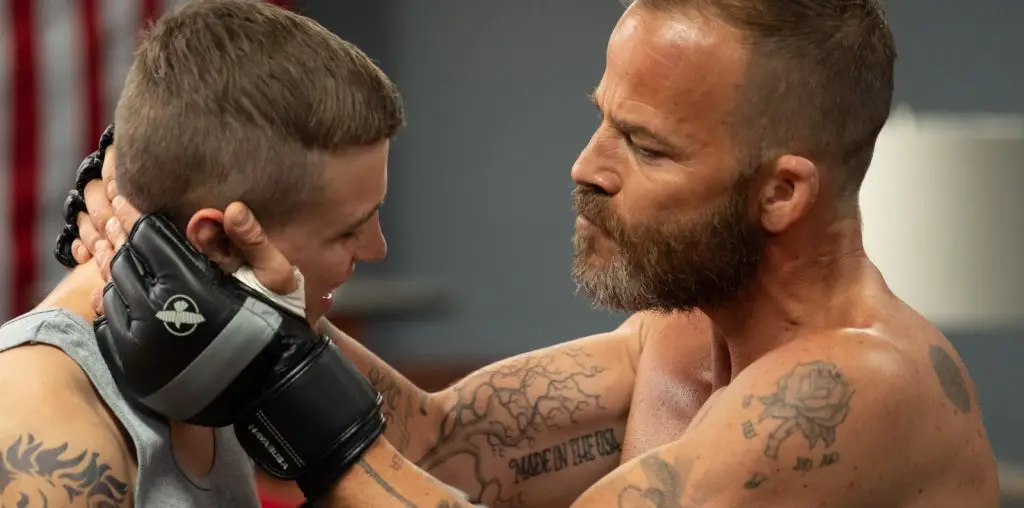
Rialto is not a film that offers a beginning, middle, and end. Instead, it slices through the stratum in the life of its characters, allowing us a moment to study their makeup. Colm (Tom Vaughan-Lawlor) works at the shipyards in Dublin, the only job he has ever had his entire life. After his father dies, Colm’s life strays from its defined path of a wife, a job, and two teenage children into something at once uncharted and vibrant, consequences be damned. Mark O’Halloran adapts his stage play Trade for the screen, directed by Peter Mackie Burns, to deliver a poignant snapshot of people in crisis and self-discovery.
Days after his estranged father’s death, and with knowledge of his job being absorbed by a corporate merger, Colm has a chance meeting with Jay (Tom Glynn-Carney) in a mall bathroom. Jay, a street-tough guy using his body to make a buck, sees an easy mark in Colm and pushes for cash after flashing his penis. Somehow, Colm not only sees past the bravado but is lured by it. Meanwhile, his loving wife, Claire (Monica Dolan), is clueless about her husband’s unraveling. That’s not to mention Colm and Claire’s daughter Kerry (Sophie Jo Wasson) and son Shane (Scott Graham), who are utterly absorbed in their own personal maelstroms. As Colm struggles to do the right thing by his widowed mother, his marriage and family are flailing. Still, he continues. But, to where?

“…a poignant snapshot of people in crisis and self-discovery.”
To O’Halloran and Burns, the journey is far more important than the destination as we watch Colm struggle through the hand that life has dealt him, bad moves and all. Lawlor’s anchoring performance holds us captive as we see a man, wincing and nebbish, transforming through crisis. Glynn-Carney’s transition from grifter to friend is subtle but notable as we go from seeing him as a predator to a lighthouse in a storm. Across the board, the performances are honest, conveying each player’s exterior sheen and inner turmoil. At an early point in the movie, Colm attempts to help his mother, Miriam (Deirdre Donnelly), in clearing her husband’s effects from their home. Despite Colm’s every effort, Donnelly’s Miriam dodges reality and offers the artifice of hospitality before tackling the business at hand. It is here that the thesis for Rialto is most broadly expressed and most painful.
The technical notes are secondary to the drama that unfolds, but they must be mentioned. Adam Scarth’s beautiful camerawork paints a Dublin that is at once sun-drenched and morose. Valentin Hadjadj’s score stays on the sidelines in support of the story onscreen to great effect. Still, it is Vaughan-Lawlor’s performance as the endlessly flawed yet well-meaning father/son that convinces us that maybe things aren’t always black and white. Sometimes life is as confusing as hell, and we need a moment to figure things out.
Rialto is a fine slice of Irish drama that maintains the lilting humanity within us all. Not one of us is perfect, but do we keep trying?

"…the performances are honest, conveying each player's exterior sheen and inner turmoil."


